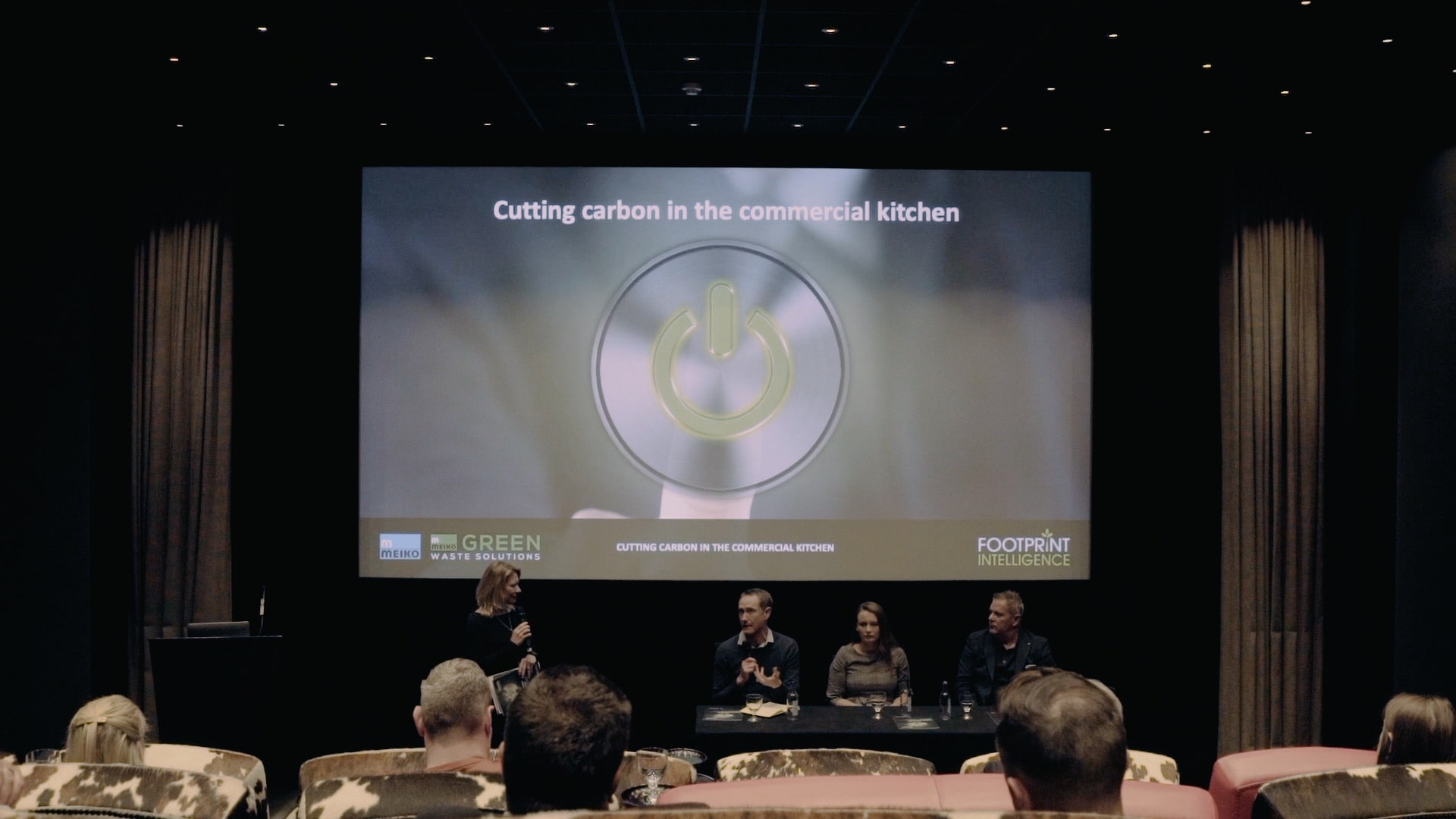
The report, entitled Cutting Carbon in the Commercial Kitchen, is packed with information and insights into the impact commercial kitchens have on the environment and advice on making foodservice operations more sustainable.
At the event launching the report, a panel of experts enjoyed a fascinating discussion on a wide range of topics related to carbon cutting in commercial kitchens, from the business case for implementing change to improve the carbon footprint in every aspect of a foodservice operation.
“Waste is not inevitable and it can be managed,” says Paul Anderson, managing director, Meiko UK.“The business case is utterly clear. We must cut carbon to remain viable and to protect the future of our planet.”
Acting as a guide to help operators achieve their net zero targets, the publication has been produced by Meiko UK working with foodservice intelligence specialist Footprint. It lays out in clear terms why acting on climate change is important, but also highlights the business case to do so.
“It’s crucial to preserve our planet, but it is also crucial to preserve our businesses,” said Amy Fetzer, head of research and analysis at Footprint.
Challenges and solutions
Based on exclusive insights from industry experts, and with practical tips from farm to fork, Cutting Carbon in The Commercial Kitchen explores how foodservice operators can meaningfully tackle the greenhouse gas emissions that exist in their ‘back of house’ operations to support the rapid reductions needed to meet the climate crisis head on.
The report is structured around five clear areas: bricks and mortar; everyday practice; equipment; on the plate; and technology. Each section outlines challenges and solutions while offering advice on how to improve.
And the solutions can be as simple as having a thoughtful approach to using hobs, pots and pans or implementing a training programme for all staff to understand why being mindful about cutting crabon is vital.
According to Fetzer, a big part of this challenge is to make it easier for people to understand what carbon and what it means for the world we live in; the educational piece is important.“The food system contributes 29% of greenhouse gases so the commercial case for this is incredibly compelling,” she said.
This is the third such report from Footprint with support by Meiko, the first two being focused on water and waste management.
While conceding there is some way to go for businesses wanting to improve, Anderson said it’s important to address the small things and progress from there. “You have to embrace it, you have to have a wish to be better and you have to understand and plan,” he said.
Click here to download the report.
Tina Nielsen
